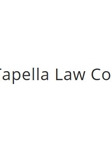Filter by
What a Trusts Lawyer Can Do for You
A trusts lawyer specializes in creating and managing trusts, which are legal entities that allow individuals to transfer assets to beneficiaries while maintaining control over how and when those assets are distributed. Trusts are used for estate planning, asset protection, tax planning, and ensuring the financial security of loved ones. Trusts lawyers help clients choose the right type of trust for their needs, draft trust documents, and advise on the administration and management of trusts.
Whether you're planning to pass on your assets to your heirs, protect your wealth from creditors, or provide for a disabled family member, a trusts lawyer can help you establish a trust that meets your financial and personal goals.
When Should I Hire a Trusts Lawyer?
You should consider hiring a trusts lawyer in various situations, particularly when you're planning for the future distribution of your assets or protecting your wealth. Common reasons to hire a trusts lawyer include:
- Estate planning: If you want to ensure that your assets are distributed according to your wishes, a lawyer can help you create a revocable or irrevocable trust to avoid probate and provide for your heirs.
- Asset protection: If you want to protect your assets from creditors, lawsuits, or potential future liabilities, a lawyer can help you establish a trust to shield your wealth.
- Special needs planning: If you have a disabled family member, a lawyer can create a special needs trust to provide for their care without affecting their eligibility for government benefits.
- Tax planning: If you're looking to minimize estate taxes or manage tax liabilities, a lawyer can help you create tax-advantageous trusts, such as a credit shelter trust or charitable remainder trust.
- Charitable giving: If you want to leave a legacy through charitable donations, a lawyer can help you set up a charitable trust to ensure your donations are managed according to your wishes.
- Business succession planning: If you own a business and want to ensure a smooth transition of ownership, a lawyer can help you establish a trust to pass the business on to your heirs or chosen successors.
Hiring a trusts lawyer early in the estate planning process ensures that your assets are protected and your wishes are clearly documented, reducing the chances of disputes after your death.
What Does a Trusts Lawyer Do?
A trusts lawyer provides a variety of legal services to help individuals create, manage, and administer trusts. Their responsibilities often include:
- Drafting trust documents: Preparing the legal documents needed to create the trust, ensuring it is tailored to your specific goals and complies with state and federal laws.
- Choosing the right type of trust: Assisting clients in selecting the most appropriate type of trust for their needs, whether it's a revocable trust, irrevocable trust, living trust, or special needs trust.
- Trust administration: Guiding trustees through their legal responsibilities, including managing assets, making distributions to beneficiaries, and filing tax returns.
- Modifying or terminating trusts: Helping modify or terminate trusts if circumstances change, such as changes in tax laws, family situations, or personal preferences.
- Protecting beneficiaries' interests: Structuring trusts to protect the interests of beneficiaries, especially if there are concerns about financial management, disability, or dependency issues.
- Minimizing estate taxes: Assisting clients in structuring their trusts to minimize or avoid estate taxes, ensuring more of the estate passes to beneficiaries.
- Handling disputes: Mediating or representing clients in court if disputes arise among beneficiaries or between trustees and beneficiaries.
How Are Trusts Lawyers Paid?
Trusts lawyers typically charge for their services based on the complexity of the trust and the type of legal work involved. Common payment methods include:
- Flat fee: For drafting basic trusts, such as revocable living trusts or special needs trusts, many lawyers charge a flat fee. This can range from $1,000 to $5,000 or more, depending on the complexity of the trust.
- Hourly rate: For more complex trust planning, ongoing trust administration, or resolving disputes, some lawyers charge by the hour. Hourly rates typically range from $150 to $500 or more, depending on the lawyer’s experience and location.
- Retainer: For long-term trust administration or complex estate planning cases, some lawyers may require a retainer, an upfront payment that covers ongoing services.
- Contingency fee (rare): In rare cases, particularly in disputes involving the administration of a trust, lawyers may work on a contingency fee basis, getting paid only if they successfully recover funds or resolve a legal dispute in your favor.
Always discuss the fee structure with your lawyer during the initial consultation to understand the total cost of services.
How Much Does a Trusts Lawyer Cost?
The cost of hiring a trusts lawyer depends on the complexity of the trust, the lawyer’s experience, and the fee structure. General cost estimates include:
- Basic trust creation: For simple trusts, such as revocable living trusts, fees may range from $1,000 to $3,000.
- Complex trust creation: For sophisticated estate plans involving multiple trusts, tax planning strategies, or special needs considerations, legal fees may range from $5,000 to $10,000 or more.
- Trust administration: If you are serving as a trustee and need ongoing legal advice, hourly rates for trust administration can range from $150 to $500 or more.
- Dispute resolution: Costs for litigation or mediation in trust disputes may range from $5,000 to $50,000 or more, depending on the complexity of the case.
Be sure to get a detailed cost estimate from your lawyer during the consultation to ensure the services fit within your budget.
Top Questions to Ask a Trusts Lawyer
Before hiring a trusts lawyer, consider asking the following questions:
-
What experience do you have with creating trusts?
Ensure the lawyer has experience drafting trusts and managing trust administration for clients with similar goals or asset structures. -
What types of trusts do you recommend for my situation?
Ask the lawyer to explain the different types of trusts available and which ones best suit your needs. -
How do you charge for your services?
Clarify the fee structure and request an estimate of the total cost. -
What are the tax implications of the trust?
Ensure the lawyer can explain how the trust will affect your taxes and strategies to minimize tax liability. -
How long will it take to set up the trust?
Ask for a timeline for creating and finalizing the trust documents. -
Will you handle the trust administration?
If ongoing management is required, inquire whether the lawyer will assist with trust administration or if you'll need a separate trustee. -
Can you help resolve disputes if they arise?
Ask about the lawyer's experience in resolving trust disputes.
How to Check the Credibility of a Trusts Lawyer
To ensure you are hiring a reputable trusts lawyer, take the following steps:
- Verify their bar status: Check with your state bar association to confirm the lawyer is licensed and has no disciplinary actions.
- Look for trust law experience: Review their website or professional profile to ensure they specialize in estate planning and trusts.
- Read client reviews and testimonials: Look for feedback on platforms like Avvo, Martindale-Hubbell, or Google.
- Ask for references: Request references from past clients who can speak to their experience with the lawyer.
- Check for certifications: Look for certifications such as Certified Estate Planning Law Specialist (EPLS) or memberships in organizations like the American Academy of Estate Planning Attorneys (AAEPA).
What Should I Prepare for My First Consultation?
To make the most of your first consultation with a trusts lawyer, bring the following:
- List of assets: Prepare a list of all your assets, including real estate, bank accounts, investments, retirement accounts, and personal property.
- List of beneficiaries: Provide names and contact information of individuals or organizations you want to name as beneficiaries.
- Existing estate planning documents: Bring copies of any existing wills, trusts, or other estate planning documents.
- Financial information: Bring financial statements, tax returns, and other relevant financial documentation.
- Questions for the lawyer: Prepare a list of questions about the trust creation process, fees, and how the trust will protect your assets and beneficiaries.
- Goals for the trust: Clearly outline your objectives, such as asset protection, tax minimization, or provisions for beneficiaries, so the lawyer can tailor the trust to your needs.
By preparing thoroughly for your consultation, you can help the lawyer assess your situation effectively and receive the best possible legal advice for creating and managing your trust.





















